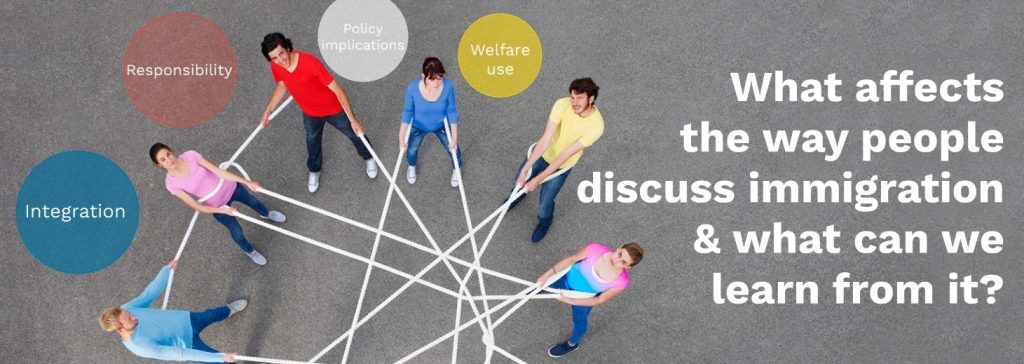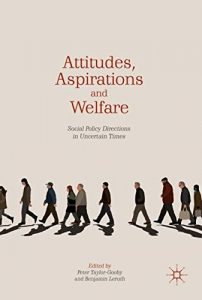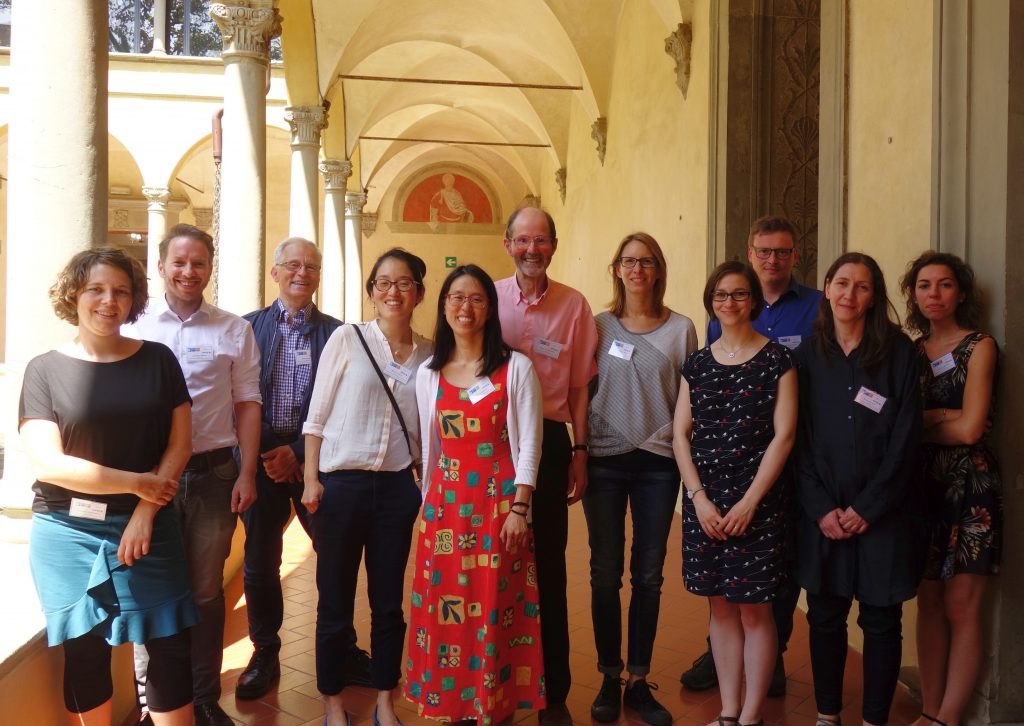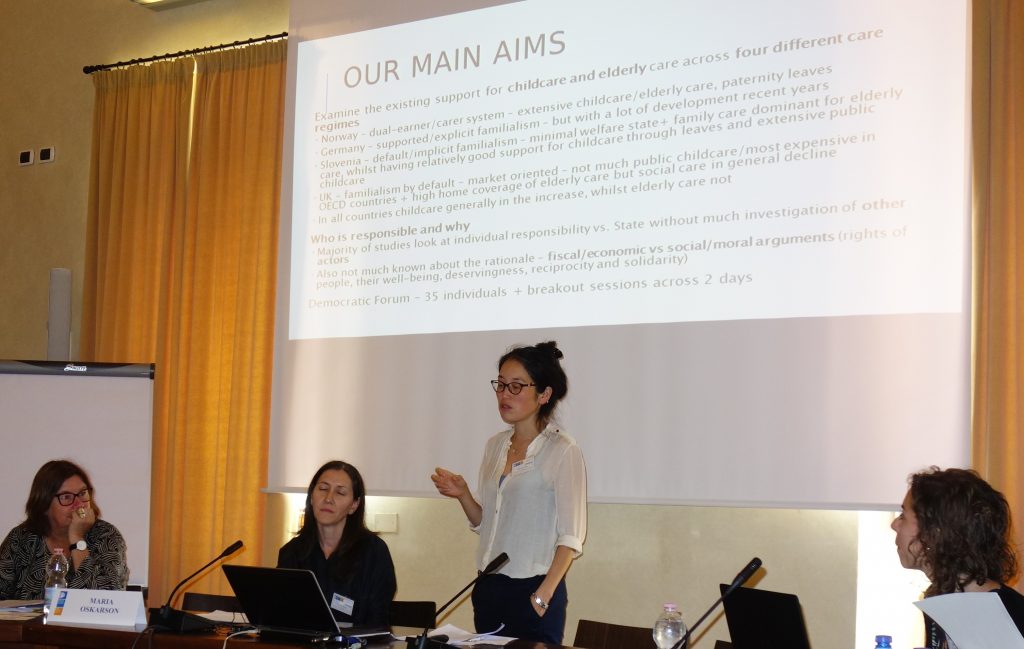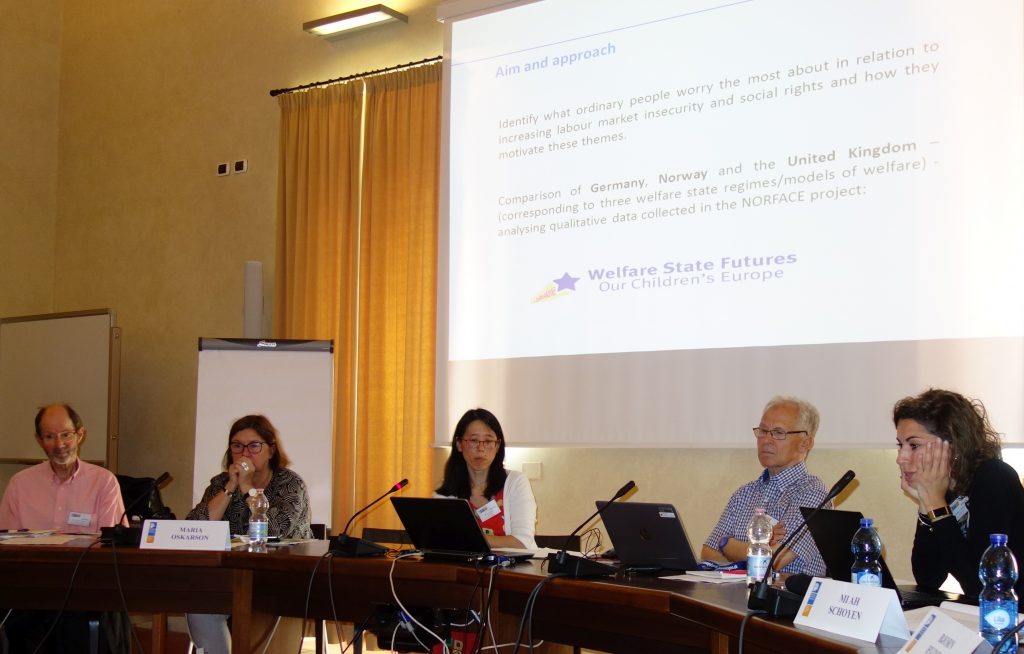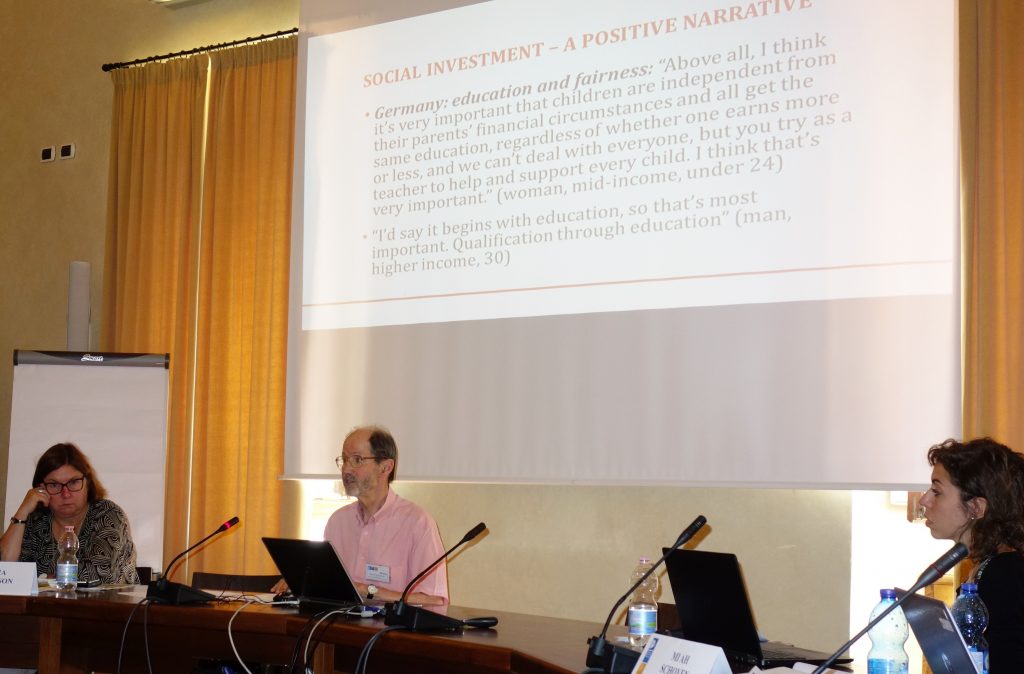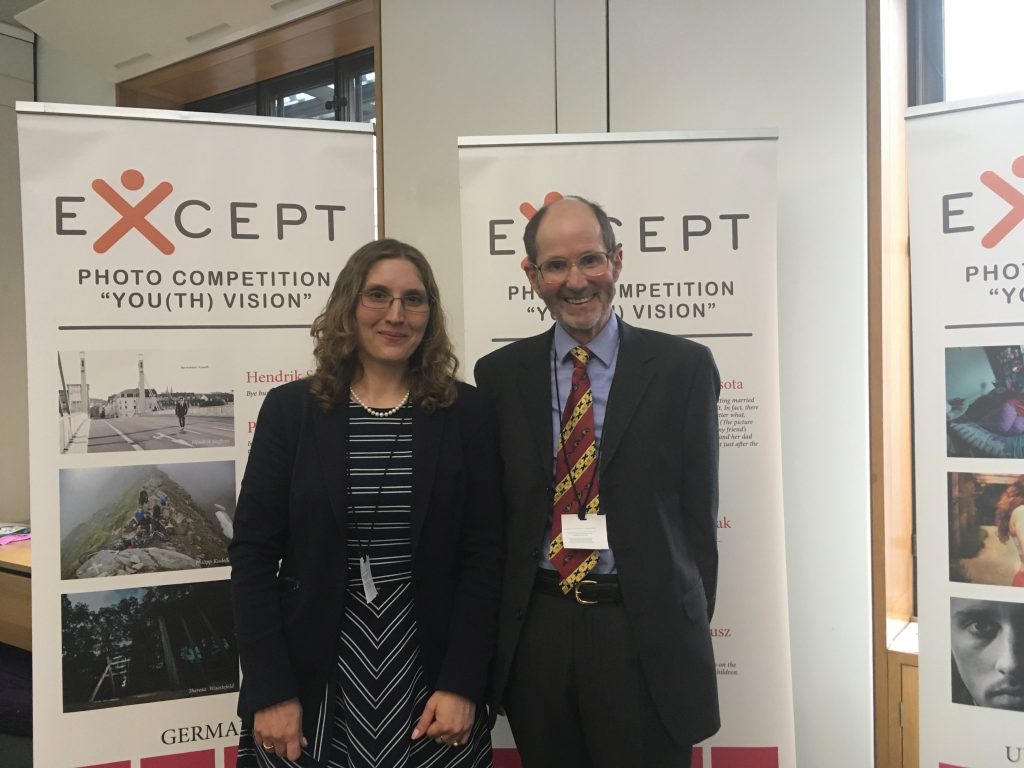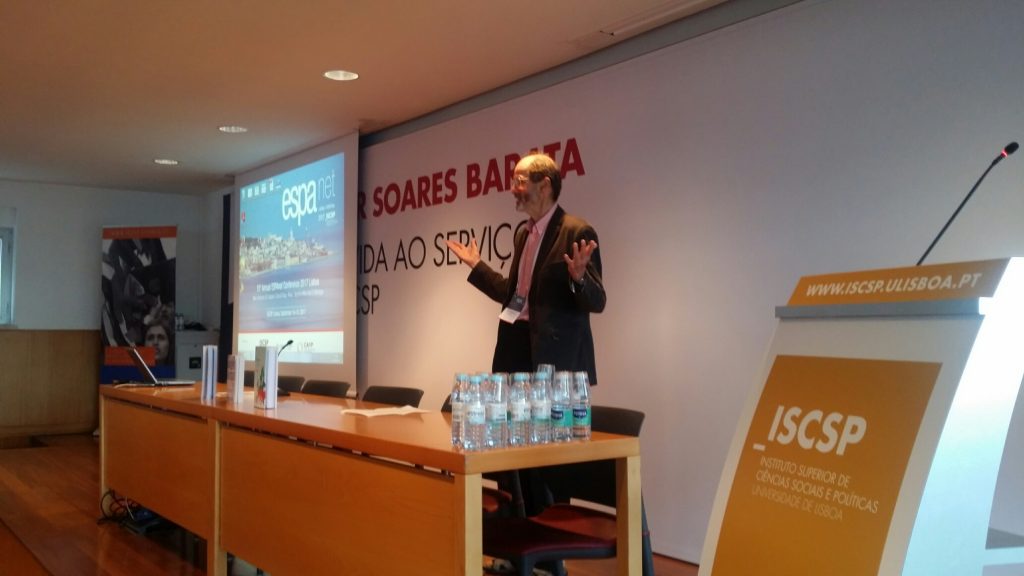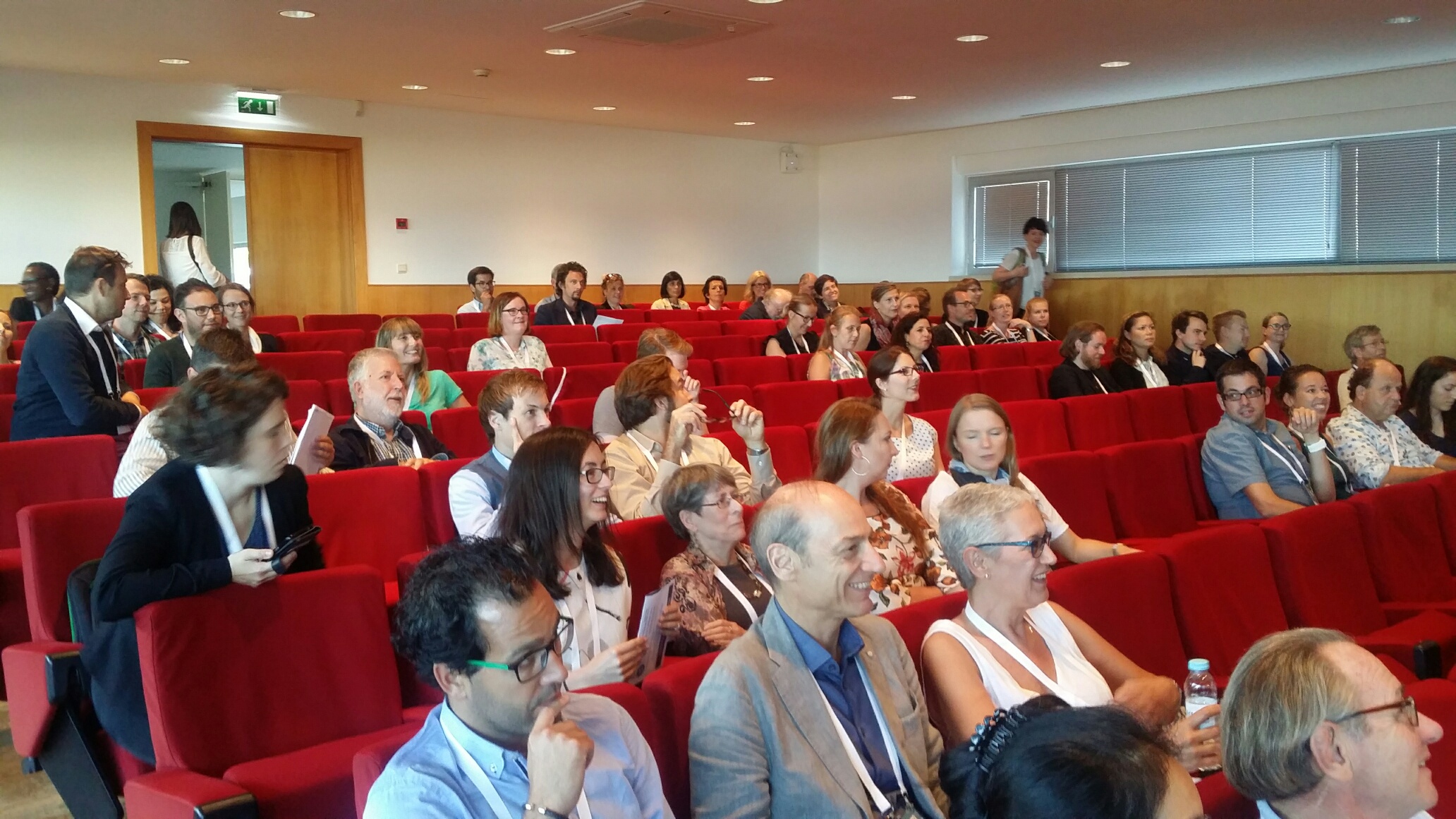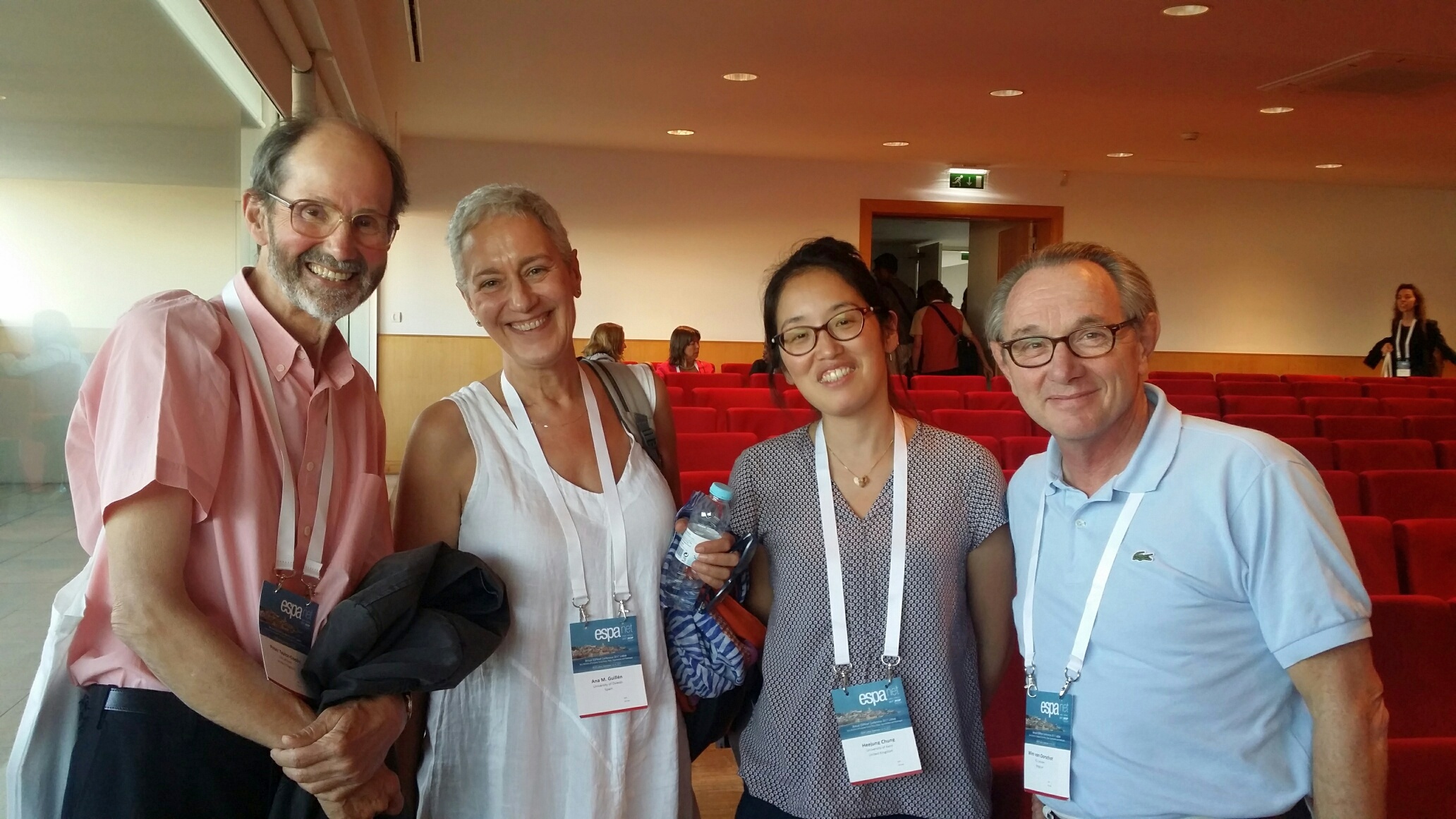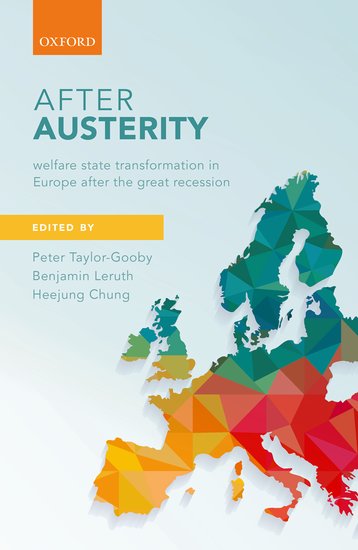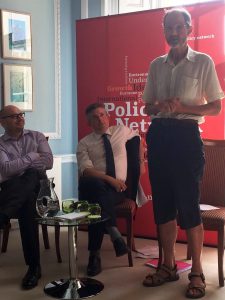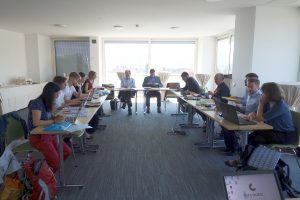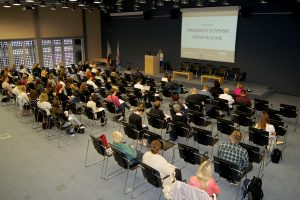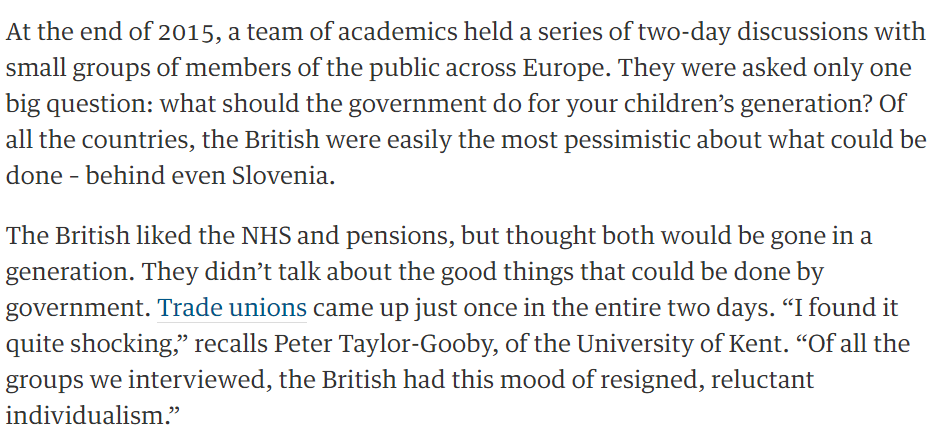Major dataset on European attitudes to the future of welfare is now available
The WelfSOC Research team is pleased to announce that the full dataset of the Welfare State Futures – Our Children’s Europe project is now publicly available. The dataset includes the democratic forum and focus group discussions, and also the related technical notes and background materials.
Funding for the project ended a year ago and we are continuing to analyse the data and will produce further publications. We regard this as one of the most substantial qualitative datasets available in this field and hope it will be of value to political scientists, sociologists, social policy academics and others interested in the future of the welfare state in Europe.
The use of democratic forums in attitudes research – WelfSOC research presented at the Oslo City Hall
On the 9th of April Adrienn Győry (Phd Candidate) got the opportunity to present her research findings to a group of policy experts at the Department of Planning and Strategy in the City Government of Oslo. The department had invited her and Dr. Trude Sundberg to give an overview of welfare attitudes and immigration and more specifically to provide new knowledge found in Adrienn’s research where she uses the deliberative method of democratic forums to analyse attitudes to immigrants’ access to welfare benefits in Norway and in the United Kingdom. Dr. Trude Sundberg gave a general overview of the current trends in welfare attitude research across Europe. Following up on the discussion on welfare attitudes, Adrienn presented her research findings focusing primarily on the democratic forum conducted in Oslo in 2015. In the presentation she highlighted that analysing attitudes through social interaction sheds light on how ordinary people understand the issue of immigration, how they differentiate between specific groups of immigrants, what considerations shape their views on immigrants’ access to welfare benefits. Furthermore, it was argued that better understanding of the reasons driving attitudes can inform policy planning and help improve policy communication to better cope with the rise of right-wing populism and support for welfare chauvinism. The presentation stressed the need for more qualitative research and how these research findings can contribute to refinement of the quantitative measurement of attitudes.
A new article on welfare deservingness analysing WelfSOC focus group discussions
The recently published working paper by Tijs Laenen, Federica Rossetti and Wim van Oorschot emphasises the relevance of using qualitative research methods in order to better understand how ordinary citizens use the five criteria of welfare deservingness. Analysing the WelfSOC focus group discussions in Denmark, Germany and the United Kingdom, the authors find the centrality of the criteria of control, reciprocity and need. While the criteria of attitude and identity were not widely used, further normative criteria were identified such as equality/universalism, cost awareness and social investment, which were raised and viewed relevant in the debates. Comparing focus groups in these three countries, authors suggest that the institutional context influences how participants use these specific criteria and how important these criteria are for them when discussing deservingness of specific target groups.
New research from the WelfSOC project shows how the different kinds of welfare state remain distinct despite all being affected by major austerity programmes
Modern welfare states depend on a range of actors: state, market, family/households, employers and charities. Current austerity programmes diminish the contribution of the state and enhance that of the other actors. This is a major shift which demands popular support if it is to succeed, but attitude studies focus almost entirely on people’s views on state responsibilities, using welfare regime theory to explain differences. Our research examines attitudes to other providers such as the market, the family or employers. We also introduce social risk theories, contrasting new and old risks. Regime theory implies differences will persist over time, but risk theory suggests that growing similarities in certain risks may tend to promote international convergence.
Our new article “Regimes, Social Risks and the Welfare Mix: Unpacking Attitudes to Pensions and Childcare in Germany and the UK through Deliberative Forums” published in the Journal of Social Policy, analyses attitudes to the roles of state, market, family, charity/community and employer for pension and childcare in Germany and the UK. We collected data using deliberative forums, a new method in social policy research that allows citizens space to pursue extended lightly moderated discussion and permits researchers to analyse people’s justifications for their attitudes. We show that there is a degree of convergence in attitudes, especially in relation to the new social risk area of childcare, but that regime predominates in people’s justifications for their attitudes. Despite austerity and all the pressures to which European welfare states are exposed regime differences in attitudes remain resilient.
The WelfSOC research team is pleased to announce the publication of the book “Attitudes, Aspirations and Welfare: Social Policy Directions in Uncertain Times” Peter Taylor-Gooby, Benjamin Leruth (Eds.)
This book uses new research in five European countries to show that most people recognize growing inequality, population ageing, paying for health care and pensions, social care and immigration as areas where the welfare state faces real challenges. The most striking findings are the high level of support across all countries for social investment, and the way justifications for interventions in training, education and childcare policies vary between welfare state regimes. The authors also explore key areas such as intergenerational difference and job insecurity.
The book summarizes and builds on the key findings from the three year Our Children’s Europe project, part of the Norface Welfare State Futures programme. We study what people want from the welfare state and the policies they think likely to achieve it using democratic forums. The forum method yields new insights into how people frame social issues and link ideas together, the priorities they identify and the solutions they find acceptable. This is the first time democratic forums have been used as a research tool in this field. The brief summary of the findings is accessible here.
WelfSoc in Florence
The WelfSoc “Our Children’s Europe” project presented eight papers at the final conference of the Norface Welfare Futures programme at the European University Institute in Florence on 23-25th May. The project explores what people think will happen to welfare state policy over the next 25 year, and the policies they would like to see.
The papers covered a wide range of issues from the welfare nationalist response to immigration to the increasingly salient debates about conditionality and deservingness, to the paradox between recognition of the needs of refugees and disquiet about immigrants who enter a country because they hope for a better life, to work on redistribution and conditionality, to care provision for both children and older people, to the values that underlie attitudes and constitute a distinctive national moral economies, to the growing importance of employers’ involvement in welfare and the innovative qualitative methods pursued by the project teams.
The overall outcome was a strong impression of the range and complexity of public attitudes, of the importance of immigration issues and of the way policies that account for a relatively small proportion of national budgets such as means-tested provision play a disproportionate role in debates. There is some evidence of a shift in emphasis away from policies directed at the needs of older people (pensions and health care) to the child care, employment and training policies of importance to those at an earlier life-stage, particularly in the richer countries.
More information on the papers presented is included under “Our publications” and “Events”.
The Moral Economy of Welfare – the UK in a European Context
Peter Taylor-Gooby gave a Public Lecture, sponsored by Trinity College Dublin, the Irish Social Policy Association and the Department of Employment Affairs and Social Protection on ‘The Moral Economy of Welfare – the UK in a European Context’ at the Mansion House Dublin on 26 April 2018. The meeting was chaired by Terry Corcoran from the Department of Employment Affairs and Social Protection and the discussant was Rory O’Donnell, Director of the National Economic and Social Council. The paper analysed material from the democratic forums of the NORFACE ‘Our Children’s Europe’ project. The meeting discussed how Ireland had looked to the UK for leadership in social affairs and how this leadership seems to be in decline.
Peter Taylor-Gooby at the House of Commons
Peter Taylor-Gooby gave the keynote at the Except project conference, introduced by Rosie Duffield MP, at the House of Commons on 25 April 2018. He presented WelfSoc findings that show strong public support for social investment. He argued that a major social investment in young people – training, education, access to housing, cheap childcare – is essential, if Britain is to succeed in the future.
Why British people don’t trust the government any more – and what can be done about it
In a recently published article on The Conversation, Peter Taylor-Gooby and Benjamin Leruth discuss the issue of trust between citizens and government in the United Kingdom. They use data from the Welfare State Futures Our Childrens’ Europe research project which uses innovative democratic forums. Out of the five countries – Denmark, Germany, Norway, Slovenia and UK – involved in the research, mistrust in the government was the most significant in the UK. The discussions on the future of welfare states revealed that the British democratic forum participants were not confident about government’s capacities to deal with the challenges faced by the welfare state. They see the government as wasteful of public money, and believe that public services are unsustainable. As participants expressed the need and firm preference for better childcare services and training opportunities, the authors suggest that social investment in social provisions and putting emphasis on the positive contributions of social services might help to rebuild the trust in government. This will be particularly important as the UK faces the challenge of leaving the European Union.
Oxford Paper: The New Individualism
Peter Taylor-Gooby presented a paper to the ‘The Politics of Austerity in the UK’ Symposium‘, chaired by Christopher Hood and Rozana Himaz, at St Cross College Oxford on 4 October. He argued that popular discussion of the welfare state in the UK is characterised by a ‘Reluctant Individualist’ framing. This stresses the incompetence of government, demonstrated by policies that promote mass immigration (seen, counterfactually, as a burden on social provision), divert resources to the workshy on benefits, mismanage state spending and impose high taxes on those who work for their money. The government fails to provide opportunities for those who are prepared to work hard, thus exacerbating inequalities and unfairness. The outcome is that many people see their future life chances as shaped by their own efforts with little welfare state support. This individualism is reluctant: they would prefer a strong and effective welfare state, but think that the government is not capable of providing it. Participants, including John Hills and Jonathan Bradshaw, saw this current of ideas as providing a powerful explanation of the toleration of damaging welfare state cuts that is evident in contemporary politics.
15th Annual ESPAnet Conference 2017 – New Horizons of European Social Policy: Risks, Opportunities and Challenges
WelfSoc members presented a number of papers at the Annual ESPAnet Conference in Lisbon on 14-16 September. Katharina Zimmerman spoke on her work with Jan-Ocko Heuer on conditionality, using data from the focus groups. Heejung Chung discussed findings from her ESRC work along the WelfSoc Democratic Forums on labour market flexibility. Masa Hrast and Tatjana Rakar included a paper on the Democratic Forums in Slovenia. Bjorn Hvinden, Peter Taylor-Gooby and Steffen Mau presented a paper on the implications of the findings for confidence in the capacity of the welfare state to provide services in the future.
The launch of the first WelfSoc book: After Austerity at an evening reception was great success with many people expressing interest in the new ideas about what governments can and can’t be expected to do for their citizens in the future.
The WelfSOC research team is delighted to announce the publication of the book „After Austerity – Welfare State Transformation in Europe after the Great Recession” (Edited by Peter Taylor-Gooby, Benjamin Leruth, and Heejung Chung)
European welfare states are undergoing profound change, driven by globalization, technical changes, and population ageing. More immediately, the aftermath of the Great Recession and unprecedented levels of immigration have imposed additional pressures. This book examines welfare state transformations across a representative range of European countries and at the EU level, and considers likely new directions in social policy. It reviews the dominant neo-liberal austerity response and discusses social investment, fightback, welfare chauvinism, and protectionism.
The class solidarities and cleavages that shaped the development of welfare states are no longer powerful. Tensions surrounding divisions between old and young, women and men, immigrants and denizens, and between the winners in a new, more competitive, world and those who feel left behind are becoming steadily more important. European countries have entered a period of political instability and this is reflected in policy directions. Austerity predominates nearly everywhere, but patterns of social investment, protectionism, neo-Keynesian intervention, and fightback vary between countries. This up-to-date study identifies areas of convergence and difference in European welfare state futures – essential reading to grasp the pace and directions of change.
German WelfSOC team presents findings on attitudes towards immigration and integration
On 22 June 2017, the German WelfSOC team presented their findings at the meeting of the Section of Social Policy in the German Sociological Association (DGS). The event was held under the theme of ‘fears in the welfare state’. In their presentation, the members of the German team, Jan-Ocko Heuer and Steffen Mau focused on fears among the German population regarding immigration and the integration of refugees into the welfare system. Based on data from the WelfSOC democratic forums in Germany, they demonstrated the broad range of worries and concerns within the population. These included worries about economic competition and cultural differences, but also indirect concerns about negative reactions in the population that could strengthen right-wing populism. They also showed how the articulation of fears was shaped by socio-economic characteristics, group composition and the dynamics of discourses. The findings were well received among the audience of academics, policymakers and practitioners.
WelfSOC research presented at the Policy Network ‘Progressive Britain’ conference today
Peter Taylor-Gooby presented his Norface research at the Policy Network ‘Progressive Britain’ conference held on 21 June, to an audience of politicians, journalists and academics. Using material from the Democratic Forums which form the central part of the project, he argued that the challenge for the left is to build trust among older voters as Corbyn has among the young and pointed to some of the policies which might achieve this.
The Ljubljana meeting of our WelfSOC team
The research team met in Ljubljana on June 8 and 9 to talk about work. Our first book After Austerity will be published by Oxford University Press on 11 August 2017. We’re working on the second book, which will discuss our research using innovative Democratic Forums in detail. The work shows how this approach contributes a much more detailed and nuanced picture of welfare state attitudes to that provided by conventional research methods. We also discussed our plans for articles, a special issue of Social Policy and Administration, our papers for the ESPAnet conference in Lisbon in September and other activities. Warm thanks to Maša Filipovič Hrast and Tatjana Rakar for making the meeting such a success.
National conference “The future of the Slovenian welfare state”
The Slovenian WelfSOC research team held a national conference “The future of the Slovenian welfare state” on 24th of May 2017 on the Faculty of Social Sciences, University of Ljubljana. The goal of the conference was to disseminate key findings from the project on people’s attitudes toward the welfare state futures and stimulate a discussion on the main concerns of social policy such as inequality and poverty, challenges on the labour market and intergenerational solidarity in Slovenia. Conference began with an opening speech of the Slovenian Minister of Labour, Family, Social Affairs and Equal Opportunities Anja Kopač Mrak and the Dean of the Faculty of Social Sciences Rado Bohinc. The main project findings were presented by project leader Maša Filipovič Hrast, which was followed by round table discussions on inequalities and poverty, intergenerational policies and labour market issues. Several known experts, representatives of civil society organisations and high government officials of the Ministry of Labour, Family, Social Affairs and Equal Opportunities and Ministry of Health joined the discussion. The conference was attended by academics, policy makers and general public.
The abstracts of the conference presentations were collected and published in electronic format accessible in Slovenian language.
WelfSOC presents new findings and papers in Gothenburg (22-24 February 2017)
The WelfSOC team attended a NORFACE Welfare State Futures workshop in Gothenburg on 22-24 February 2017. More information about this workshop is available on the official NORFACE WSF website – full programme available here.
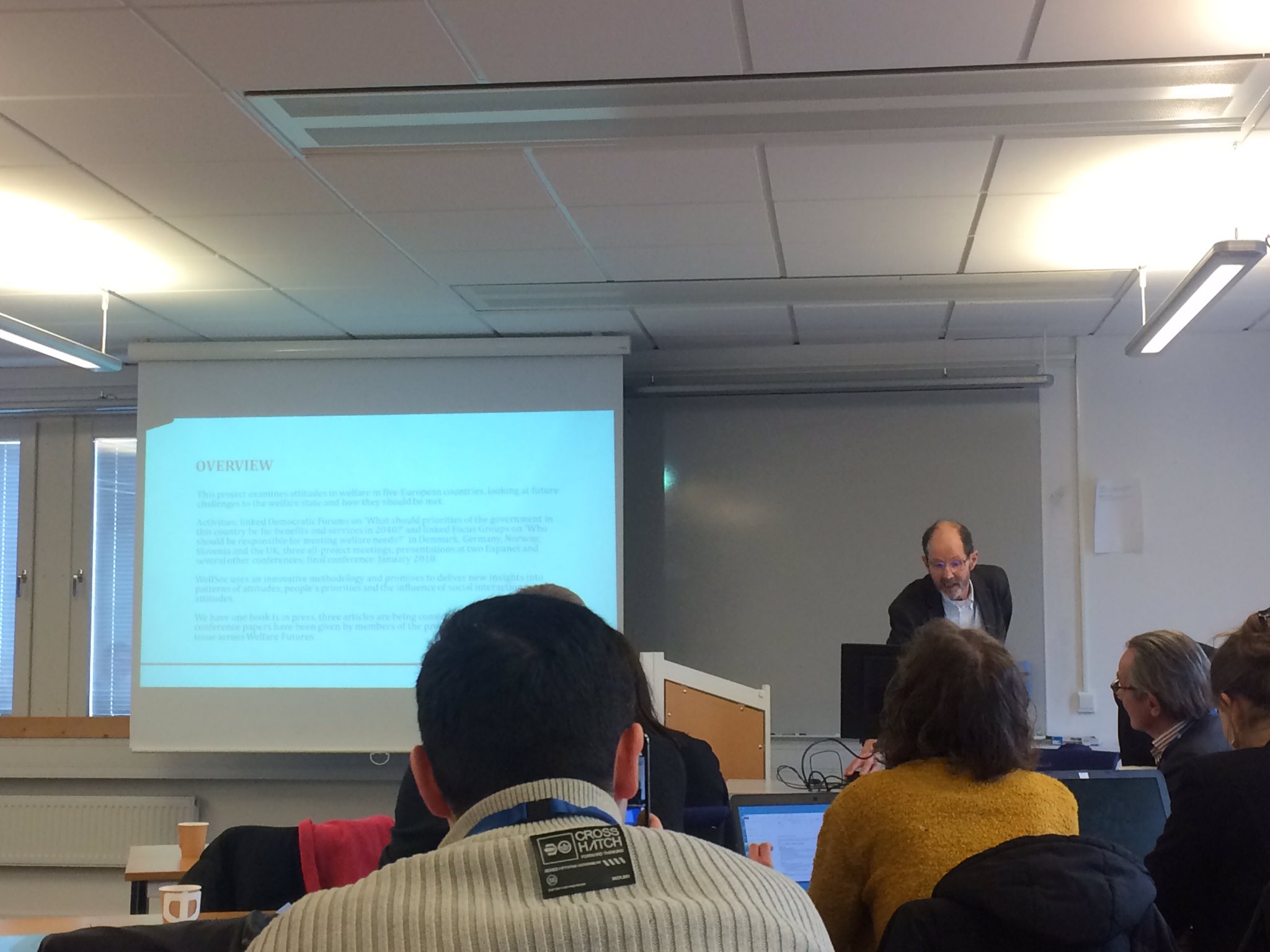
Professor Peter Taylor-Gooby, Project Leader, presents the WelfSOC project
All research teams have now finalised the preliminary analysis of the democratic forums, which were held in late 2015. The analysis of Focus Groups, held in September/October 2016, is under way. A total of six papers were presented by WelfSOC researchers:
- How do ordinary citizens morally assess ongoing changes of the universal welfare state? An analysis of data from deliberative forums in Denmark – Mathias Herup Nielsen (Aalborg University, Post-Doctoral Researcher)
- Public support for the social rights and social obligations of the unemployed: two sides of the same coin? – Tijs Laenen (Leuven University, Associate Researcher)
- “He is the future of the welfare state: diligent, capable…” – How citizens perceive and justify the relative deservingness of needy groups – Katharina Zimmermann & Jan-Ocko Heuer
- Attitudes towards future policies for the elderly: a comparative analysis of four welfare states – Maša Filipovič Hrast, Bjørn Hvinden, Kjetil Klette Boehler, Tatjana Rakar, Mi Ah Schøyen and Vegard Svagård
- Does political discourse matter? Comparing party manifestos and policy preferences on immigration and welfare in the United Kingdom – Benjamin Leruth
- Democratic Forums: their contribution to attitude research – Peter Taylor-Gooby
WelfSOC mentioned in The Guardian (01 February 2017)
In his most recent opinion piece, Aditya Chakrabortty interviewed Professor Peter Taylor-Gooby about our WelfSOC project. You can read his article here.

